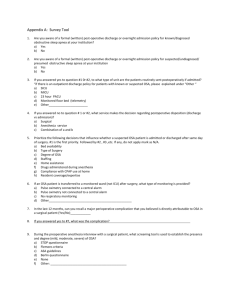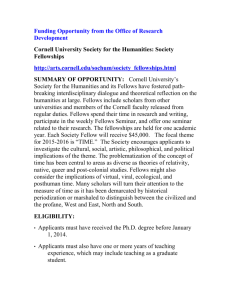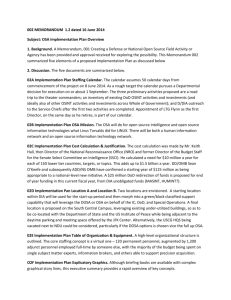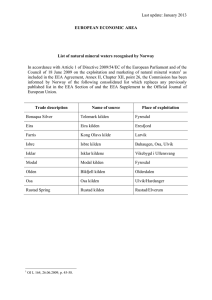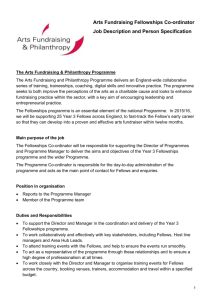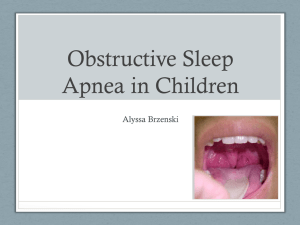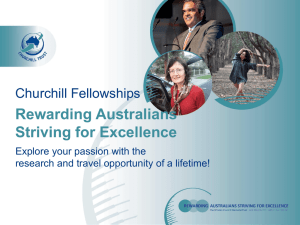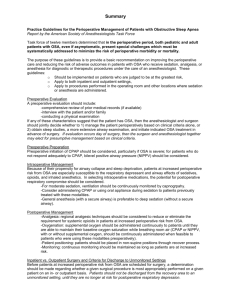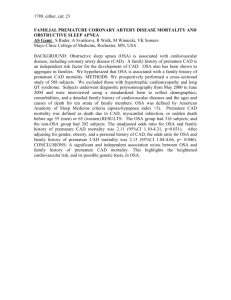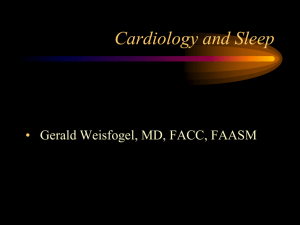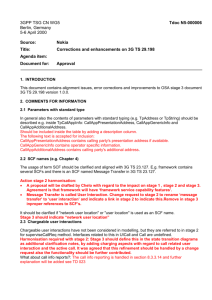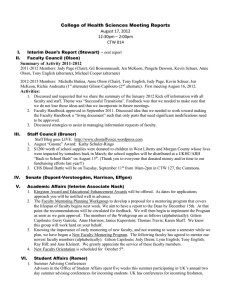Research topics—2015/2016
advertisement
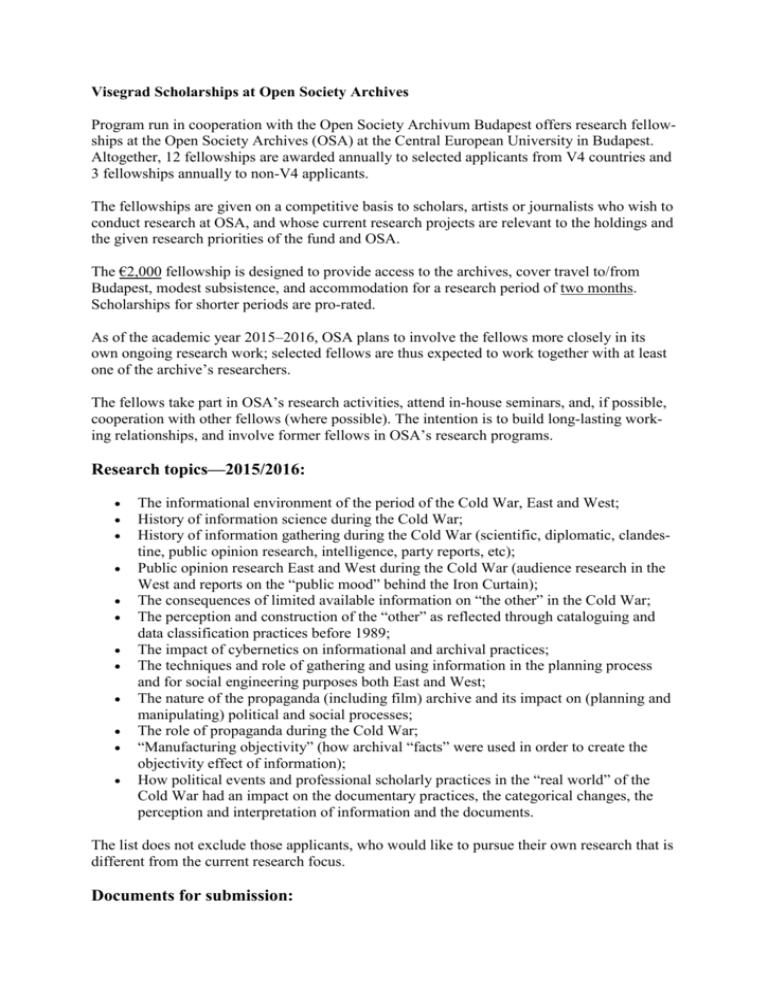
Visegrad Scholarships at Open Society Archives Program run in cooperation with the Open Society Archivum Budapest offers research fellowships at the Open Society Archives (OSA) at the Central European University in Budapest. Altogether, 12 fellowships are awarded annually to selected applicants from V4 countries and 3 fellowships annually to non-V4 applicants. The fellowships are given on a competitive basis to scholars, artists or journalists who wish to conduct research at OSA, and whose current research projects are relevant to the holdings and the given research priorities of the fund and OSA. The €2,000 fellowship is designed to provide access to the archives, cover travel to/from Budapest, modest subsistence, and accommodation for a research period of two months. Scholarships for shorter periods are pro-rated. As of the academic year 2015–2016, OSA plans to involve the fellows more closely in its own ongoing research work; selected fellows are thus expected to work together with at least one of the archive’s researchers. The fellows take part in OSA’s research activities, attend in-house seminars, and, if possible, cooperation with other fellows (where possible). The intention is to build long-lasting working relationships, and involve former fellows in OSA’s research programs. Research topics—2015/2016: The informational environment of the period of the Cold War, East and West; History of information science during the Cold War; History of information gathering during the Cold War (scientific, diplomatic, clandestine, public opinion research, intelligence, party reports, etc); Public opinion research East and West during the Cold War (audience research in the West and reports on the “public mood” behind the Iron Curtain); The consequences of limited available information on “the other” in the Cold War; The perception and construction of the “other” as reflected through cataloguing and data classification practices before 1989; The impact of cybernetics on informational and archival practices; The techniques and role of gathering and using information in the planning process and for social engineering purposes both East and West; The nature of the propaganda (including film) archive and its impact on (planning and manipulating) political and social processes; The role of propaganda during the Cold War; “Manufacturing objectivity” (how archival “facts” were used in order to create the objectivity effect of information); How political events and professional scholarly practices in the “real world” of the Cold War had an impact on the documentary practices, the categorical changes, the perception and interpretation of information and the documents. The list does not exclude those applicants, who would like to pursue their own research that is different from the current research focus. Documents for submission: 1. 2. 3. 4. 5. Application letter in English Research description/plan in English (about 800 words) Applicant’s CV Names of two referees with contact addresses Copy of English language exam More information/contact: Visegrad Scholarships at OSA (OSA website) Ms. Katalin Gádoros (Gadoros@ceu.hu)
